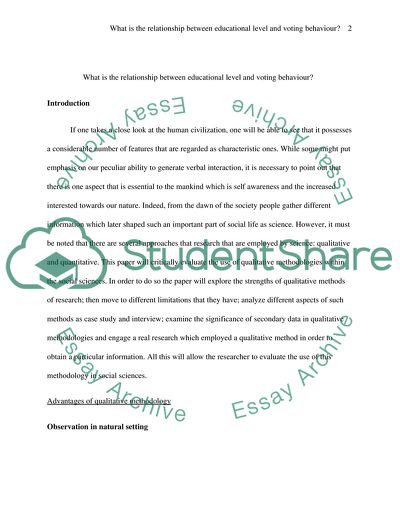Cite this document
(What is the Relationship between Educational Level and Voting Behaviour Case Study Example | Topics and Well Written Essays - 2250 words, n.d.)
What is the Relationship between Educational Level and Voting Behaviour Case Study Example | Topics and Well Written Essays - 2250 words. https://studentshare.org/sociology/1878161-what-is-the-relationship-between-educational-level-and-voting-behaviour
What is the Relationship between Educational Level and Voting Behaviour Case Study Example | Topics and Well Written Essays - 2250 words. https://studentshare.org/sociology/1878161-what-is-the-relationship-between-educational-level-and-voting-behaviour
(What Is the Relationship Between Educational Level and Voting Behaviour Case Study Example | Topics and Well Written Essays - 2250 Words)
What Is the Relationship Between Educational Level and Voting Behaviour Case Study Example | Topics and Well Written Essays - 2250 Words. https://studentshare.org/sociology/1878161-what-is-the-relationship-between-educational-level-and-voting-behaviour.
What Is the Relationship Between Educational Level and Voting Behaviour Case Study Example | Topics and Well Written Essays - 2250 Words. https://studentshare.org/sociology/1878161-what-is-the-relationship-between-educational-level-and-voting-behaviour.
“What Is the Relationship Between Educational Level and Voting Behaviour Case Study Example | Topics and Well Written Essays - 2250 Words”. https://studentshare.org/sociology/1878161-what-is-the-relationship-between-educational-level-and-voting-behaviour.


